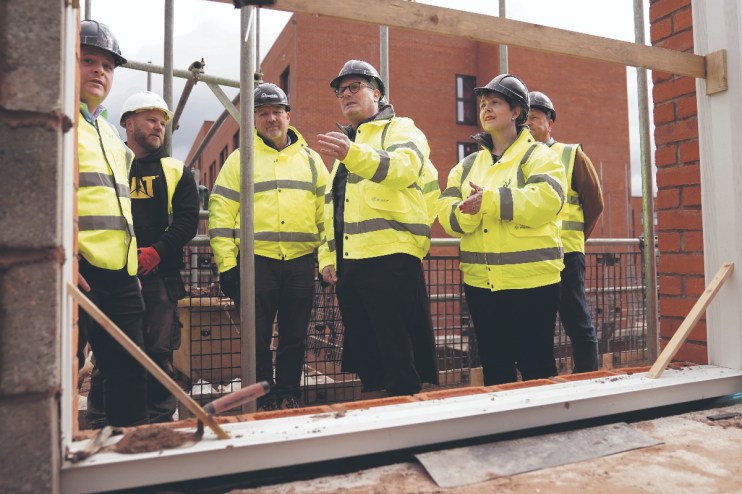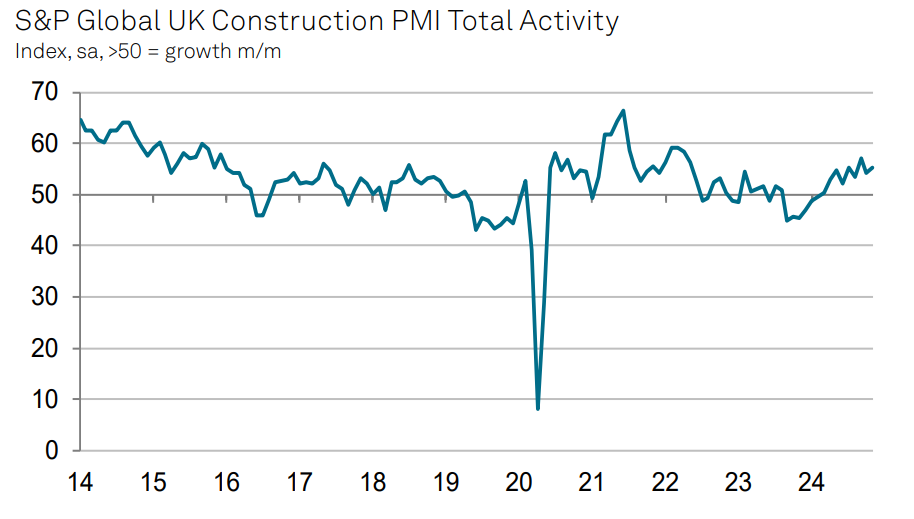Slump in housebuilding casts doubt on government’s new homes pledge

The government’s ambitious housebuilding target is likely to attract further scrutiny after a new survey pointed to a “sustained downturn” in residential construction.
S&P’s purchasing managers’ index (PMI) for the construction sector showed that housebuilding activity fell to its lowest level since June last month, posting 47.9. This was the second month in a row that the residential index was below the 50 no-change mark.
Higher borrowing costs and “fragile” consumer sentiment both weighed on demand in November, the survey said.
Tim Moore, economics director at S&P Global Market Intelligence, said housebuilding was suffering from a “sustained downturn”.
Matthew Pointon, senior commercial real estate economist at Capital Economics, said: “The decline in the housing balance means it has now fully reversed the bounce seen following the general election when Labour’s pledge to boost homebuilding appeared to boost developers’ confidence.”
The government has pledged to build 1.5m homes over the course of the parliament, which would mean returning annual housebuilding to the highest levels since the 1970s.
Ministers are pushing ahead with major reforms to the planning regime to meet their targets, but some analysts think the government will still struggle to hit its goals.
“The industry is held back by land availability, affordable housing, productivity and labour shortages, with the root cause of these issues being the planning system,” Stacy Eden, national head of real estate and construction at RSM UK said.
A recent report from the Centre for Cities suggested that the government would still fall 388,000 homes short of its target, even if private sector building increased at its fastest pace since World War II.
Pointon said that growing fears that the government will “struggle to follow through on their ambition” had dampened sentiment among housebuilders.
Despite the downturn in housing, the overall PMI accelerated to 55.2 in November. This was up from 54.3 in October, and means the index has been in expansionary territory for nine consecutive months.

Moore said the sector’s recovery remained “lopsided”, with both civil and commercial construction experiencing “strengthening demand”.
November saw the strongest rise in commercial work for two-and-half-years, with the index climbing to 58.1. Civil engineering, meanwhile, came in at 55.9.
The survey showed that new business volumes across the sector had increased for the tenth successive month, although it slipped to its lowest since June.
Looking forward, business confidence fell to its lowest level for 13 months, with survey respondents noting that the Budget would likely increase their cost base.
Inflationary pressures also picked up, with firms dealing with the fastest rise in their average cost burden for 18 months.
“Many construction companies cited concerns about the near-term UK economic outlook and subsequent cutbacks to new projects,” Moore said.